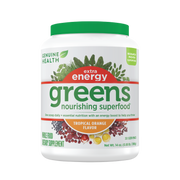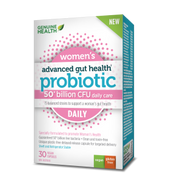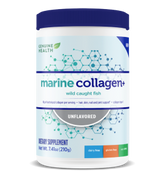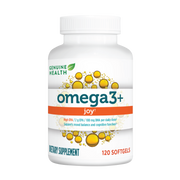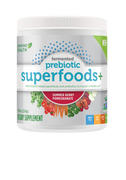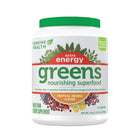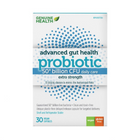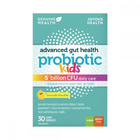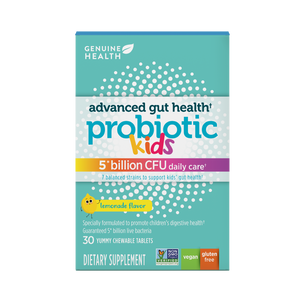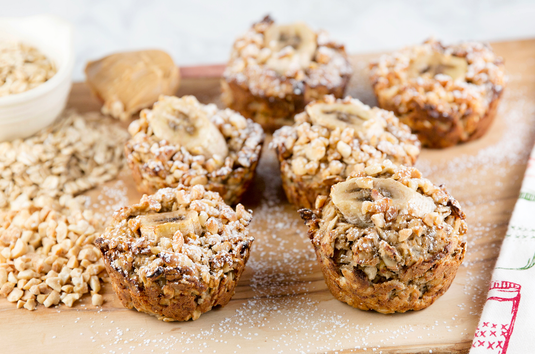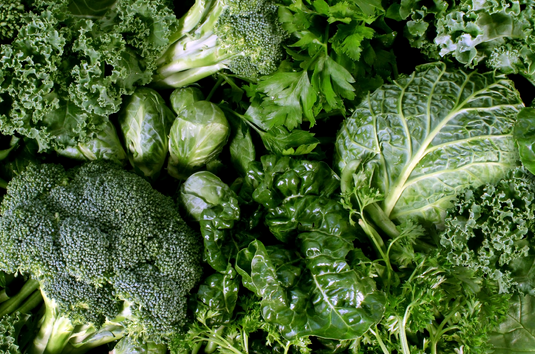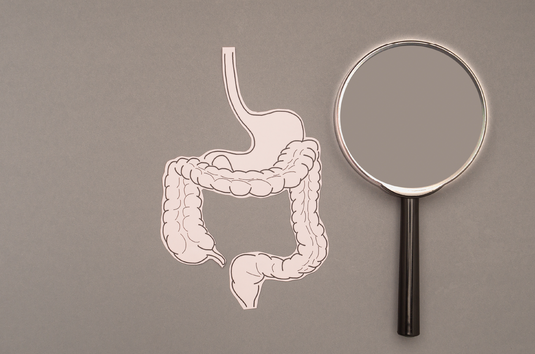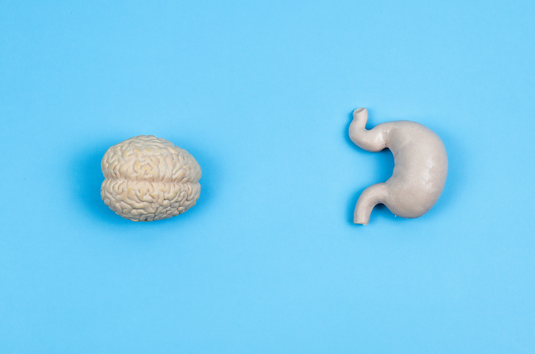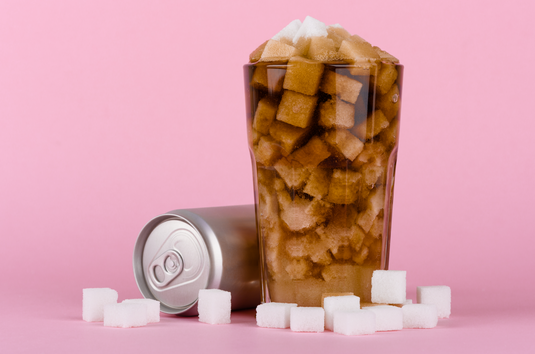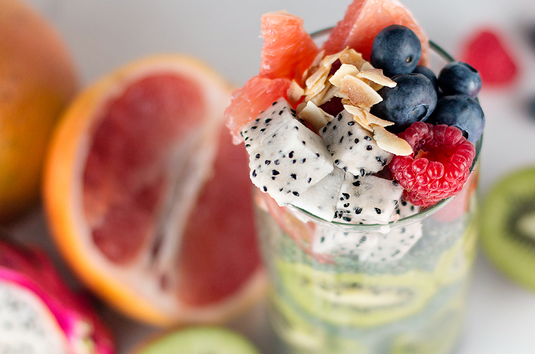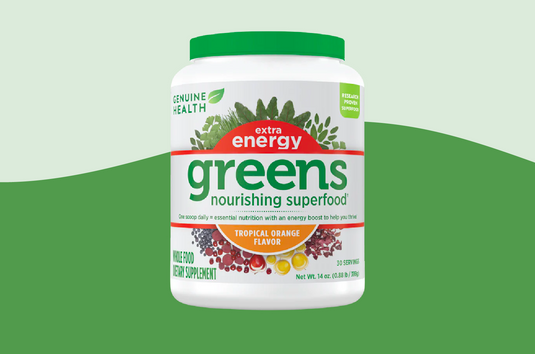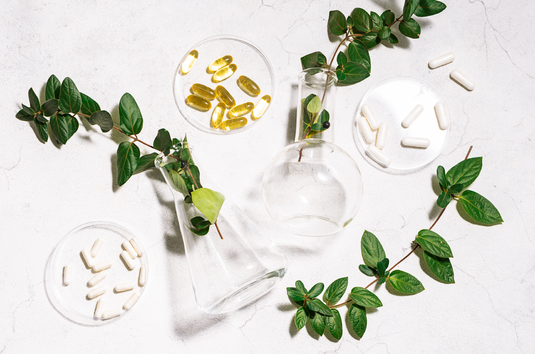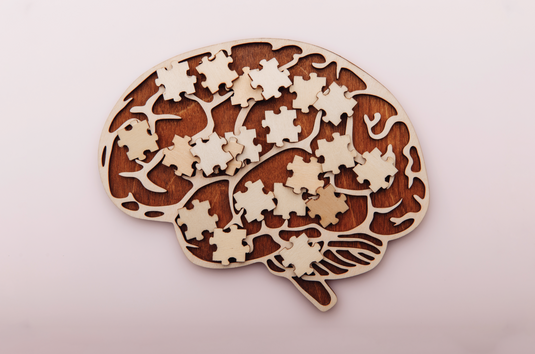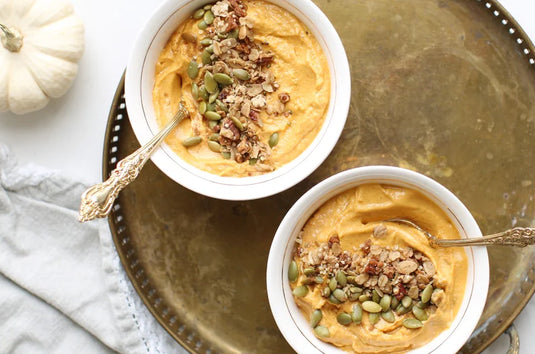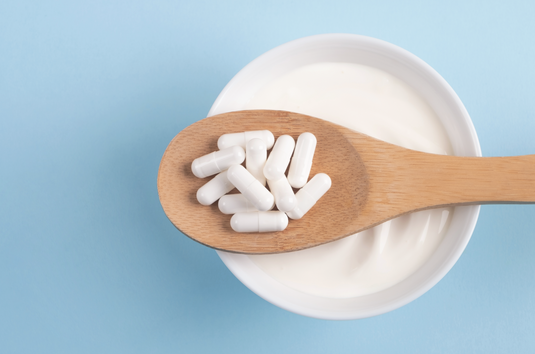A Gastroenterologist’s Tips for Nurturing Your Child’s Gut Health

Did you know that the human gut microbiome is capable of changing? A mother’s microbiome shifts significantly when she is pregnant, so it may not surprise you to learn that a child’s microbiome shifts, too.
Newborn to 3 years of age is a critically important time. When a child is born, their gut is basically sterile (meaning that their gut does not have any bacteria). But by the time they reach 3 years old, the child has developed a fully-formed, adult microbiome.
To put this in perspective, my son is two and a half years old, and his gut is likely just as developed as mine is.
So why should we care about our kids’ gut health?
Birth to 3 years of age is an absolutely critical time. Supporting a child’s gut microbiome can help them develop a healthy immune response.
How do we do that?
Some things are obvious—like avoiding antibiotics whenever possible. We know that 5 days on the antibiotic Cipro will wipe out 35% of gut bacteria. And you can still see the effects of this damage for years.
What about the kid who has multiple ear infections and keeps getting blasted with antibiotics? That’s exactly what we want to protect against! Antibiotics are sometimes necessary, but we want to be very cautious about when we use them.
What else? Let’s think about mother nature and the connection that baby has with mom. This connection is designed to develop a healthy microbiome.
A child who is born via C-section will not have the same first exposure to mom’s bacteria. Think about this—when a child is born, they pass through the birth canal and are exposed to the flora that are in mom’s vagina. This is mother nature providing super charged probiotics right from the get-go to help develop the gut. If you have a C-section, you are essentially taking away this first exposure to bacteria.
Another thing is breastfeeding. It’s critically important to child development. What’s fascinating to me is that we have discovered that human breast milk contains something called human milk oligosaccharides (HMOs). These HMOs have zero nutritional value for the child. So why are they there?
HMOs are actually food for bacteria. They are prebiotic, designed to nourish the healthy bacteria that live inside the newborn child.
So what can we do to take care of our kids?
Both of my children were born by C-section. Although we obviously didn’t want it to be that way, but there was nothing that we could do about it.
My son had very bad eczema. We tried everything, but we couldn’t make it go away. When he turned 6 months old, we started giving him a probiotic, and we were able to get rid of the eczema in 2 days. If we forgot to give him his probiotic for a few days, his eczema would return. This is just one example of the power you can have as a parent!
We know that human breastmilk contains prebiotics. But those aren’t the only prebiotics that you can give your children. You can find prebiotics in fruits, vegetables, whole grains, seeds and nuts.
The other place you can find prebiotics is in fermented organic gut superfoods+ kids. So prebiotics from fermented organic gut superfoods+ kids and advanced gut health probiotic kids are two of the approaches that you can help to support the development of a healthy gut during this critical time.
Newborn to 3 years of age is a critically important time. When a child is born, their gut is basically sterile (meaning that their gut does not have any bacteria). But by the time they reach 3 years old, the child has developed a fully-formed, adult microbiome.
To put this in perspective, my son is two and a half years old, and his gut is likely just as developed as mine is.
So why should we care about our kids’ gut health?
Birth to 3 years of age is an absolutely critical time. Supporting a child’s gut microbiome can help them develop a healthy immune response.
How do we do that?
Some things are obvious—like avoiding antibiotics whenever possible. We know that 5 days on the antibiotic Cipro will wipe out 35% of gut bacteria. And you can still see the effects of this damage for years.
What about the kid who has multiple ear infections and keeps getting blasted with antibiotics? That’s exactly what we want to protect against! Antibiotics are sometimes necessary, but we want to be very cautious about when we use them.
What else? Let’s think about mother nature and the connection that baby has with mom. This connection is designed to develop a healthy microbiome.
A child who is born via C-section will not have the same first exposure to mom’s bacteria. Think about this—when a child is born, they pass through the birth canal and are exposed to the flora that are in mom’s vagina. This is mother nature providing super charged probiotics right from the get-go to help develop the gut. If you have a C-section, you are essentially taking away this first exposure to bacteria.
Another thing is breastfeeding. It’s critically important to child development. What’s fascinating to me is that we have discovered that human breast milk contains something called human milk oligosaccharides (HMOs). These HMOs have zero nutritional value for the child. So why are they there?
HMOs are actually food for bacteria. They are prebiotic, designed to nourish the healthy bacteria that live inside the newborn child.
So what can we do to take care of our kids?
- Vaginal delivery whenever possible
- Maximum breastfeeding, for as long as possible
- Minimize antibiotic exposure whenever possible
Both of my children were born by C-section. Although we obviously didn’t want it to be that way, but there was nothing that we could do about it.
My son had very bad eczema. We tried everything, but we couldn’t make it go away. When he turned 6 months old, we started giving him a probiotic, and we were able to get rid of the eczema in 2 days. If we forgot to give him his probiotic for a few days, his eczema would return. This is just one example of the power you can have as a parent!
We know that human breastmilk contains prebiotics. But those aren’t the only prebiotics that you can give your children. You can find prebiotics in fruits, vegetables, whole grains, seeds and nuts.
The other place you can find prebiotics is in fermented organic gut superfoods+ kids. So prebiotics from fermented organic gut superfoods+ kids and advanced gut health probiotic kids are two of the approaches that you can help to support the development of a healthy gut during this critical time.



